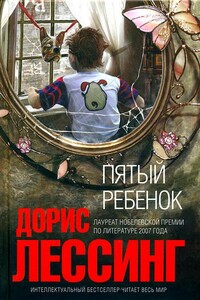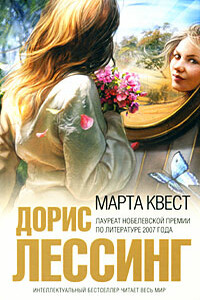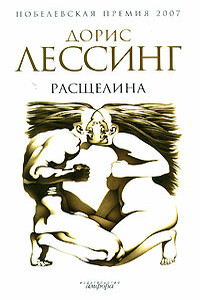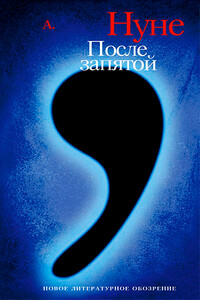Маленький Темби - [20]
Not long after the dogs were poisoned, it became necessary for Willie to make the trip into town, thirty miles off. Jane did not want to go; she disliked the long, hot, scurrying day in the streets. So Willie went by himself.
In the morning, Jane went to the vegetable garden with her younger children. They played around the water-butt, by themselves, while she staked out a new row of beds; her mind was lazily empty, her hands working quickly with twine and wooden pegs. Suddenly, however, an extraordinary need took her to turn around sharply, and she heard herself say: 'Tembi! She looked wildly about her; afterwards it seemed to her she had heard him speak her name. It seemed to her that she would see a spindly earnest-faced black child kneeling behind her between the vegetable beds, poring over a tattered picture book. Time slipped and swam together; she felt confused; and it was only by looking determinedly at her two children that she regained a knowledge of how long it had been since Tembi followed her around the garden.
When she got back to the house, she sewed on the veranda. Leaving her chair for a moment to fetch a glass of water, she found her sewing basket had gone. At first she could not believe it. Distrusting her own senses, she searched the place for her basket, which she knew very well had been on the veranda not a few moments before. It meant that a native was lingering in the bush, perhaps a couple of hundred yards away, watching her movements. It wasn't a pleasant thought. An old uneasiness filled her; and again the name 'Tembi' rose into her mind. She took herself into the kitchen and said to the cookboy: 'Have you heard anything of Tembi recently? But there had been no news, it seemed. He was 'at the gold mines'. His parents had not heard from him for years.
'But why a sewing basket? muttered Jane to herself, incredulously. 'Why take such a risk for so little? It's insane.
That afternoon, when the children were playing in the garden and Jane was asleep on her bed, someone walked quietly into the bedroom and took her big garden hat, her apron, and the dress she had been wearing at morning. When Jane woke and discovered this, she began to tremble, half with anger, half with fear. She was alone in the house, and she had the prickling feeling of being watched. As she moved from room to room, she kept glancing over her shoulder behind the angles of wardrobe and cupboard, and fancied that Tembi's great imploring eyes would appear there, as unappeasable as a dead person's eyes, following her.
She found herself watching the road for Willie's return. If Willie had been there, she could have put the responsibility on to him and felt safe: Jane was a woman who depended very much on that invisible support a husband gives. She had not known, before that afternoon, just how much she depended on him; and this knowledge — which it seemed the thief shared — made her unhappy and restless. She felt that she should be able to manage this thing by herself, instead of waiting helplessly for her husband. I must do something, I must do something, she kept repeating.
It was a long, warm, sunny afternoon. Jane, with all her nerves standing to attention, waited on the veranda, shading her eyes as she gazed along the road for Willie's car. The waiting preyed on her. She could not prevent her eyes from returning again and again to the bush immediately in front of the house, which stretched for mile on mile, a low, dark scrubby green, darker because of the lengthening shadows of approaching evening. An impulse pulled her to her feet, and she marched towards the bush through the garden. At its edge she stopped, peering everywhere for those dark and urgent eyes, and called, 'Tembi, Tembi. There was no sound. 'I won't punish you, Tembi, she implored. 'Come here to me. She waited, listening delicately, for the slightest movement of branch or dislodged pebble. But the bush was silent under the sun; even the birds were drugged by the heat; and the leaves hung without trembling. 'Tembi! she called again; at first peremptorily, and then with a quaver in her voice. She knew very well that he was there, flattening himself behind some tree or bush, waiting for her to say the right word, to find the right things to say, so that he could trust her. It maddened her to think he was so close, and she could no more reach him than she could lay her hands on a shadow. Lowering her voice persuasively she said: 'Tembi, I know you are there. Come here and talk to me. I won't tell the police. Can't you trust me, Tembi?
Not a sound, not a whisper of a reply. She tried to make her mind soft and blank, so that the words she needed would appear there, ready for using. The grass was beginning to shake a little in the evening breeze, and the hanging leaves tremored once or twice; there was a warm mellowing of the light that meant the sun would soon sink; a red glow showed on the foliage, and the sky was flaring high with light. Jane was trembling so she could not control her limbs; it was a deep internal trembling, welling up from inside, like a wound bleeding invisibly. She tried to steady herself. She said: This is silly, 1 can't be afraid of little Tembi! How could I be? She made her voice firm and loud and said: 'Tembi, you are being very foolish. What's the use of stealing things like a stupid child? You can be clever about stealing for a little while, but sooner or later the police will catch you and you will go to prison. You don't want that, do you? Listen to me, now. You come out now and let me see you; and when the boss comes I'll explain to him, and I'll say you are sorry, and you can come back and work for me in the vegetable garden. I don't like to think of you as a thief, Tembi. Thieves are bad people. She stopped. The silence settled around her; she felt the silence like a coldness, as when a cloud passes overhead. She saw that the shadows were thick about her and the light had gone from the leaves, that had a cold grey look. She knew Tembi would not come out to her now. She had not found the right things to say. 'You are a silly little boy, she announced to the still listening bush. 'You make me very angry, Tembi. And she walked very slowly back to the house, holding herself calm and dignified, knowing that Tembi was watching her, with some plan in his mind she could not conjecture.

Гарриет и Дэвиду с самого начала удается осуществить прекрасную мечту всех молодоженов: у них есть большой и уютный дом, стабильный доход, четверо счастливых и прелестных ребятишек и куча любящих родственников. Каникулы в их доме — изобильные праздники жизни и семейного счастья. А потом у них появляется пятый ребенок, ничего сверхъестественного… Но вот человек ли он?

Дорис Лессинг получила Нобелевскую премию по литературе с формулировкой: «Повествующей об опыте женщин, со скептицизмом, страстью и провидческой силой подвергшей рассмотрению разделенную цивилизацию». Именно об опыте женщин и о цивилизации, выставляющей барьеры природному началу, пойдет речь в книге «Бабушки». Это четыре истории, каждая из которых не похожа на предыдущую.Новелла, давшая название всей книге, — самая, пожалуй, яркая, искренняя, необычная.Что делать женщине, которая любит сына подруги? Природа подсказывает, что надо отдаться чувству, что никогда она не будет так счастлива, как в объятиях этого молодого человека.

Марта Квест, молодая романтичная идеалистка, бунтует против сложившегося монотонного уклада жизни. Ей хочется читать взахлеб, мечтать о несбыточном и танцевать до упаду. Ей хочется дать волю инстинктам в поисках мужчины своей мечты.«Марта Квест» — роман, переведенный на все европейские языки и выдержавший несколько десятков изданий. Книга, принесшая Дорис Лессинг, нобелевскому лауреату по литературе за 2007 год, мировую известность.

Британская писательница Дорис Лессинг – лауреат Нобелевской премии по литературе за 2007 год. Она обладает особым женским взглядом, который позволяет ей точно и в то же время с определенной долей скептицизма писать о разобщенности современного мира."Лето перед закатом" – роман, погружающий читателя в глубины расстроенной психики и безумия. Героиня романа – привлекательная женщина балзаковского возроста, оказывается оторванной от привычной жизни.

Саре Дурхам шестьдесят пять лет, и она уже не ждет от жизни никаких сюрпризов. Однако все меняется, когда экспериментальный театр, в котором работает Сара, решает поставить пьесу о Жюли Вэрон, красавице квартеронке, жившей в XIX веке. Один из лучших романов знаменитой английской писательницы Дорис Лессинг, лауреата Нобелевской премии за 2007 год.

Роман известной английской писательницы, лауреата Нобелевской премии Дорис Лессинг рассказывает о древней женской общине, существовавшей в прибрежной полосе Эдема. Женщины этой общины не знали мужчин и в них не нуждались. Деторождение управлялось лунным циклом, рожали они исключительно девочек. И вот появление на свет странного ребенка - мальчика - угрожает разрушить гармонию их существования…

«Кто лучше знает тебя: приложение в смартфоне или ты сама?» Анна так сильно сомневается в себе, а заодно и в своем бойфренде — хотя тот уже решился сделать ей предложение! — что предпочитает переложить ответственность за свою жизнь на электронную сваху «Кисмет», обещающую подбор идеальной пары. И с этого момента все идет наперекосяк…

Бен Уикс с детства знал, что его ожидает элитная школа Сент-Джеймс, лучшая в Новой Англии. Он безупречный кандидат – только что выиграл национальный чемпионат по сквошу, а предки Бена были основателями школы. Есть лишь одна проблема – почти все семейное состояние Уиксов растрачено. Соседом Бена по комнате становится Ахмед аль-Халед – сын сказочно богатого эмиратского шейха. Преисполненный амбициями, Ахмед совершенно не ориентируется в негласных правилах этикета Сент-Джеймс. Постепенно неприятное соседство превращается в дружбу и взаимную поддержку.

Самое завораживающее в этой книге — задача, которую поставил перед собой автор: разгадать тайну смерти. Узнать, что ожидает каждого из нас за тем пределом, что обозначен прекращением дыхания и сердцебиения. Нужно обладать отвагой дебютанта, чтобы отважиться на постижение этой самой мучительной тайны. Талантливый автор романа `После запятой` — дебютант. И его смелость неофита — читатель сам убедится — оправдывает себя. Пусть на многие вопросы ответы так и не найдены — зато читатель приобщается к тайне бьющей вокруг нас живой жизни. Если я и вправду умерла, то кто же будет стирать всю эту одежду? Наверное, ее выбросят.

Однажды утром Майя решается на отчаянный поступок: идет к директору школы и обвиняет своего парня в насилии. Решение дается ей нелегко, она понимает — не все поверят, что Майк, звезда школьной команды по бегу, золотой мальчик, способен на такое. Ее подруга, феминистка-активистка, считает, что нужно бороться за справедливость, и берется организовать акцию протеста, которая в итоге оборачивается мероприятием, не имеющим отношения к проблеме Майи. Вместе девушки пытаются разобраться в себе, в том, кто они на самом деле: сильные личности, точно знающие, чего хотят и чего добиваются, или жертвы, не способные справиться с грузом ответственности, возложенным на них родителями, обществом и ими самими.

История о девушке, которая смогла изменить свою жизнь и полюбить вновь. От автора бестселлеров New York Times Стефани Эванович! После смерти мужа Холли осталась совсем одна, разбитая, несчастная и с устрашающей цифрой на весах. Но судьба – удивительная штука. Она сталкивает Холли с Логаном Монтгомери, персональным тренером голливудских звезд. Он предлагает девушке свою помощь. Теперь Холли предстоит долгая работа над собой, но она даже не представляет, чем обернется это знакомство на борту самолета.«Невероятно увлекательный дебютный роман Стефани Эванович завораживает своим остроумием, душевностью и оригинальностью… Уникальные персонажи, горячие сексуальные сцены и эмоционально насыщенная история создают чудесную жемчужину». – Publishers Weekly «Соблазнительно, умно и сексуально!» – Susan Anderson, New York Times bestselling author of That Thing Called Love «Отличный дебют Стефани Эванович.

В книге рассказывается история главного героя, который сталкивается с различными проблемами и препятствиями на протяжении всего своего путешествия. По пути он встречает множество второстепенных персонажей, которые играют важные роли в истории. Благодаря опыту главного героя книга исследует такие темы, как любовь, потеря, надежда и стойкость. По мере того, как главный герой преодолевает свои трудности, он усваивает ценные уроки жизни и растет как личность.